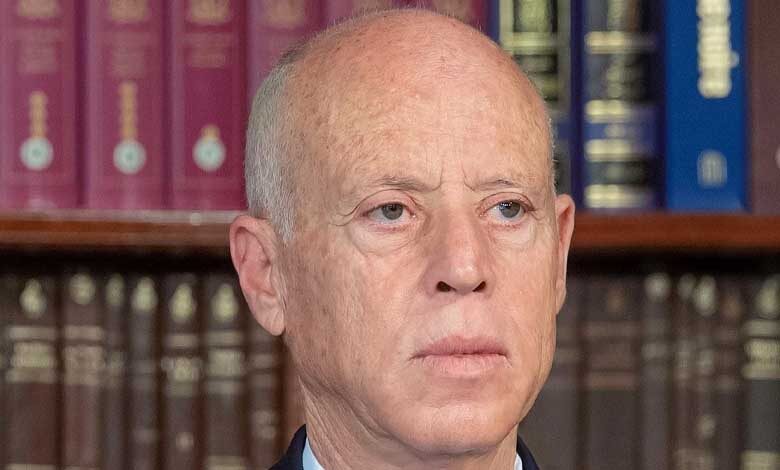By extraordinary resolutions… The eloquent President is getting rid of the “greatest evil”

He refused to end his second year in office before writing his name in the history of Tunisia with exceptional decisions that will benefit the country later after getting rid of what is described as the “great evil” of the Brotherhood organization, which is represented by Ennahdha and its overthrow from power.
Kais Saied, or the legendary president as some would call him, after a number of revolutionary decisions he made, after enough dried up and despair reached its peak as Tunisians due to the intransigence of the Muslim Brotherhood movement, and its disruption of the democratic process, taking advantage of the aegis of parliament and immunity.
Overnight, Saied pulled the rug out from under the feet of the Muslim Brotherhood, announced the freezing of parliament, lifted the immunity of all its members, dismissed the pro-Ennahda Prime Minister Hisham Al-Mashaichi, and personally headed the executive branch, pending further decisions that would spell an unhappy end to the terrorist organization.
Since Said’s ascension to authority on 23 October 2019, the Brotherhood’s plots to restrict his movement and prevent him from fulfilling his promises to eradicate corruption and promote the economy, which has suffered during the past period, have been full of conflict and strife with the Sheik of Sedition and Subversion, Rached Ghannouchi.
Since his first appearance after being elected president, a wide range of Tunisians have invaded the minds of the same accents that have always characterized him, in the same classical Arabic that he speaks in secret and in public.
Saied, the “mysterious man” turns the equation of the political scene in Tunisia, steals the spotlight from the parties, and flies overhead, a strict academic whose students did not think he could speak slang as everyone does, or get out of that strict look of the professor of constitutional law who in his life knew no work but teaching at universities.
Today, he paints his own equation, with his own set-up and rules, as different as his ability to attract young people and even party rules may be.
On Sunday, Said announced the freezing of all parliamentary activities and the dismissal of al-Machaichi after a day of demonstrations against the Brotherhood’s Renaissance Movement in many cities across the country, despite the heavy deployment of police to limit movement.
Saied announced the decisions under Article 80 of the constitution after an emergency meeting at the Carthage Palace as the country faces an unprecedented political and health crisis in power struggles and Brotherhood intransigence.
Road to Carthage Palace
October 13th, 2019, was not a normal day for Saied, seeing his life’s dream come true as the result of Tunisia’s presidential elections.
With a little money and a lot of mystery, the newcomer on the political scene in Tunisia was able to decipher a large segment of his people, who until recently were unable to understand his mysterious personality.
His explanation is clear from the first moment when you set foot in this modest apartment, which embraced his electoral campaign in the popular Ibn Khaldun style in the capital Tunisia, an approach crowded with popular restaurants and vendors running their carts.
“However, the small apartment, which appears to passers-by with broken windows, dilapidated doors and a few plastic chairs, was made out of the dream of actually sitting on a carthage chair.”
Its rigid features and its coffee shop, where it is used to sitting surrounded by students and young people who crowded around it, wanting to travel in its place and try to remove some of its mystery, all indicate that you are facing a different personality by all standards.
kais saied
In 1958, kais Saied was born in Tunisa in 1958. He studied public international law and earned his graduate degree in law and political science.
After receiving his university degree from the Faculty of Law and Political Science, the young man completed his higher studies at the International Academy of Constitutional Law in Tunisia, to travel to Italy and enroll at the Higher Institute of Humanitarian Law in San Remo.
In his career, which he began after graduating in 1986, kais Saied joined the education sector, where he worked as a teacher at the Faculty of Law, Economic and Political Sciences in Sousse, eastern Tunisia.
During his tenure at the Faculty of Law, Economic and Political Sciences, he served as Director of the Public Law Department between 1994 and 1999.
However, in 1999 he moved to teach at the Faculty of Legal, Political and Social Sciences in Tunisia.












